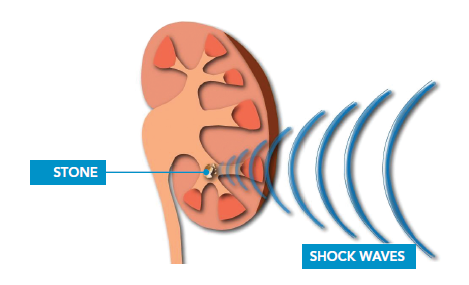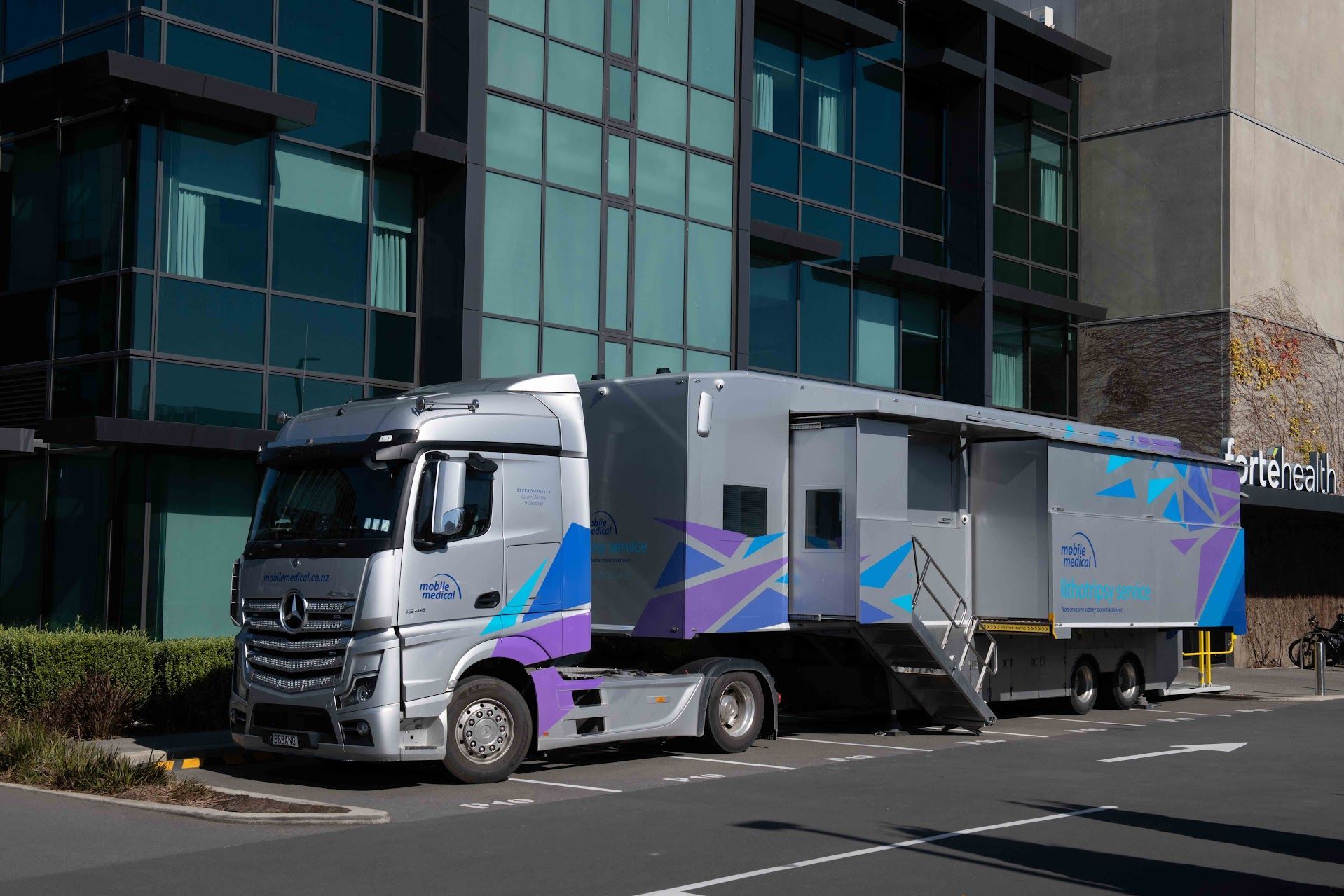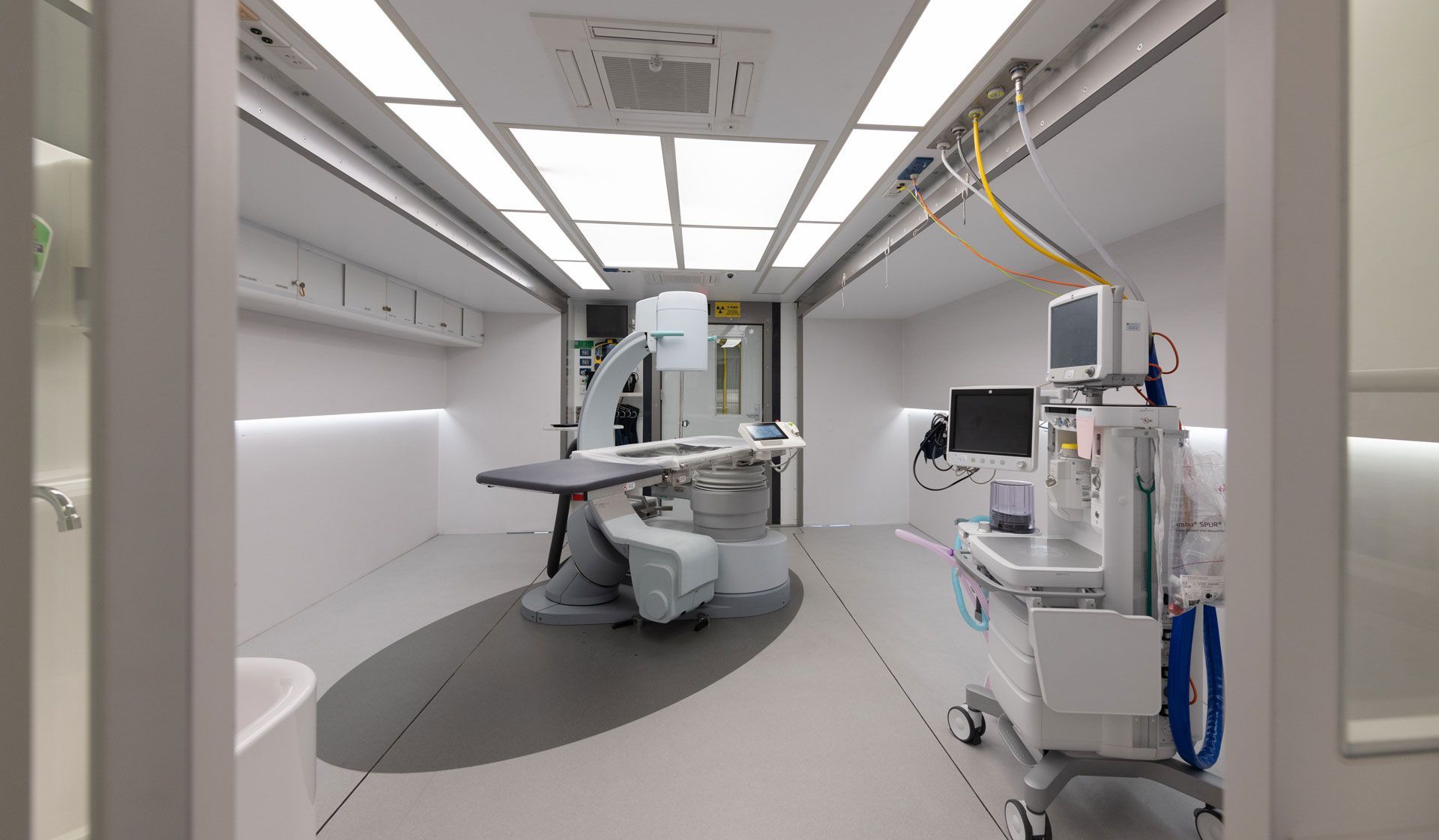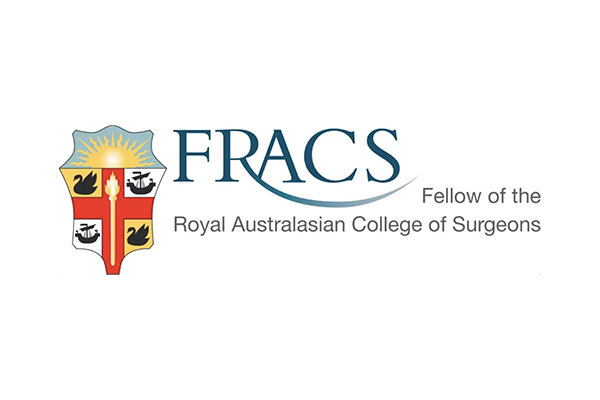Lithotripsy (ESWL)
Extracorporeal shock wave lithotripsy (ESWL) or lithotripsy for short, is a commonly used non-invasive alternative to surgery for the treatment of kidney stones.
The procedure is done under sedation or anaesthetic on the Lithotripsy Bus. It works by focusing high energy acoustic pulses that pass through the skin to disintegrate the stones. The sand-like stone fragments can then pass out of the body in the urine.
Lithotripsy has the advantage of typically a much faster recovery than conventional stone surgery.
Before your operation
The operation and outcomes will be explained to you by your Urologist. When you feel comfortable that you understand what is to be done and have had all your questions answered you will be asked to sign a consent form.
Blood test / Urine test
A blood test will need to be performed and a urine sample may need to be taken 4-5 days prior to surgery. Your surgeon will give you a form to take to the laboratory to have these tests done.
X-ray
An x-ray may be ordered preoperatively to check the location of the stone.
Operation day
When it is time for treatment a nurse will escort you from the ward to the Lithotripsy bus (parked outside the hospital). You will meet the Urologist on the bus. You will be taken through to the treatment room and your Anaesthetist will insert an IV line into your arm. This is so you can have sedation and pain relief medication during the ESWL treatment.
You are positioned on the bed and using ultrasound or x-ray guidance, the Urologist can focus the shock waves on the stone.
The ESWL sounds like a hammer tapping and will take about 1 hour to complete treatment.

Recovery
At the end of treatment, you will be transferred to a wheelchair and taken to recovery. Once able you will be encouraged to drink plenty of fluid to assist with flushing out stone fragments. After a period of observation, you will be discharged home.
After discharge
Blood / Difficulty passing urine
Some blood in the urine can occur after this treatment. Please contact Urology associates if you experience difficulty passing urine or the blood in your urine does not resolve.
Infection
It is possible to develop an infection following this treatment. If you develop high fevers and pain, seek advice from Urology Asociates immediately
Bruising
There is often bruising or a mild graze on the skin where the shock waves have passed through the body. There may be some bruising to the kidney which can be painful.
Stone fragments will pass out of the body in the urine. Occasionally this can cause discomfort and pain as they travel out.
Unsuccessful treatment
There is a chance that ESWL may not be successful in breaking up the stone on the first attempt. If the stone is not fully treated, a second ESWL or alternatively a surgical option may be recommended.









